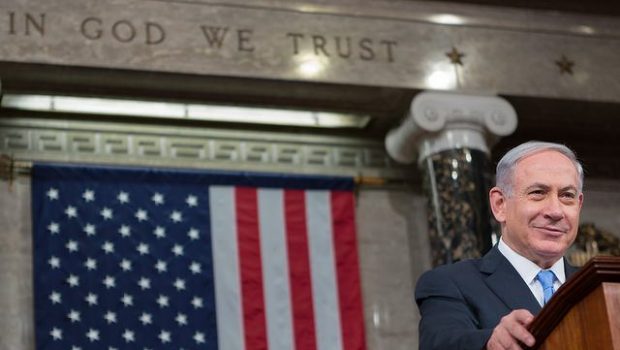The Worst and the Best in Us, Beyond the Walls
Lo peor y lo mejor que somos: más allá de los muros
Sandra Lorenzano
Translated by Tanya Huntington
Netanyahu says that he did not mean to say what he said. Or that he did not mean to write what he wrote. Yet his tweet was very clear: ” President Trump is right. I built a wall along Israel’s southern border. It stopped all illegal immigration. Great success. Great idea.” What he did not say speaks volumes. It also turns my stomach. I know my reaction is not serious enough, not journalistic enough, not academic enough, not intellectual enough, but it is sickeningly accurate. Before everything we are now experiencing, my first reaction is a visceral one. My body reacts before my consciousness kicks in: please excuse me.
I will try and explain my turned stomach to you (and to myself):
1. Intolerance, arrogance, authoritarianism, segregation, discrimination: that is what the word “wall” means to say in Netanyahu’s Tweet. And that is what the word “wall” means to say in Donald Trump’s messages.
The Jewish community of Mexico rejected the stance of the Israeli Prime Minister in an official communiqué. Our Jewish intellectuals also immediately raised their voices; Sabina Berman, for example, wrote: “Netanyahu, when you don’t know what you’re talking about, it is best to shut up. Mexican Jews would appreciate that silence.”
Trying to get out of a tight spot, the Israeli Prime Minister blamed the “misunderstanding” on the “left-wing” media, “mobilized on a Bolshevik hunt.” Touché! Once again, intolerance, arrogance, authoritarianism, etcetera, etcetera, this time against the left. His phrase is dangerously reminiscent of the Argentinean dictatorship and its defense of “our values” before “international communism and its red rag”; “leftists,” “subversives,” and “Bolsheviks” were terms that abounded in their military discourse. Naysaying intolerance with renewed signs of intolerance is a terrifyingly frequent strategy, one that in this case shows with clarity where Netanyahu stands, with or without Twitter. Or may those who live on the other side of that successful wall he boasts of tell us otherwise.
2. The reaction generated by Trump on this side of the Rio Grande ought to be channeled, from my own personal perspective, into various tasks that seem fundamental to me, beyond the nationalisms and patriotisms that –it must be said– can also become perilous, as we know too well:
a) Turn to Latin America: it is time for us as Mexicans to recover and strengthen our true sense of belonging to the continent. A belonging that was a source of pride and a fundamental sign of identity for many years, one that was lost when we adopted a nearly unilateral gaze toward the United States under the guise of neoliberal policies couched in symbolic, cultural, academic, and economic terms (more than 80% of our exports are destined to our northern neighbor), among other factors.
b) Review our national policy with regards to migrants from Central America and the Caribbean who pass through our country. Our southern border is currently one of the most dangerous in the world. Those who cross it face aggression, deportation, kidnapping, rape: this is a painful and shocking reality. It is also an opportunity for Mexico to once again become the country that welcomed thousands of refugees and exiles with open arms over the course of the 20th century: another of our proud signs of identity.
c) Rethink the policies that have led so many of our compatriots to go North. Hopefully, someday Mexicans will not have to migrate out of economic necessity. Hopefully, someday indigenous people and farmers will live free from want in their communities. Hopefully, someday women will no longer have to constantly protect themselves from sexist violence. Hopefully, someday the 68 indigenous languages and 364 dialects spoken in our country will be respected.
I leave these lines here to start a dialogue. Only by putting our heads together, debating, and listening to one another can we confront this new (and yet, not so new) reality. Like many others, I would be satisfied if this terrible situation caused us to fall back on ourselves, in order to try and change the worst and strengthen the best in us.
*Official Photo by Caleb Smith
©Literal Publishing
Netanyahu dice que no dijo lo que dijo. O que no quiso escribir lo que escribió. El tweet era muy claro: “El presidente Trump está en lo correcto. Yo construí un muro en la frontera sur de Israel. Paró toda la inmigración ilegal. Gran éxito. Gran idea”. Su “no decir” es más que elocuente. Se me revuelve el estómago. Sé que mi frase es poco seria, poco periodística, poco académica, poco intelectual, pero es espantosamente cierta. Ante lo que estamos viviendo, mi primera reacción es visceral. Mi cuerpo reacciona antes que mi conciencia. Espero sepan disculparme.
Intentaré explicar(me) mi estómago revuelto:
1. Intolerancia, prepotencia, autoritarismo, segregación, discriminación. Todo eso quiere decir “muro” en el tweet de Netanyahu. Todo eso quiere decir “muro” en los mensajes de Donald Trump.
La comunidad judía de México rechazó la postura del primer ministro israelí en un comunicado oficial. Al mismo tiempo, nuestros intelectuales judíos también se pronunciaron; Sabina Berman, por ejemplo, escribió: “Netanyahu, when you don’t know what you’re talking about, it is best to shut up. Mexican Jews would appreciate that silence”.
Para tratar de salir del aprieto, el premier israelí culpó del “malentendido” a la “prensa de izquierda y su cacería bolchevique”. Touché! Nuevamente intolerancia, prepotencia, autoritarismo, etcétera, etcétera. Ahora contra la izquierda. Su frase me recuerda peligrosamente a la dictadura argentina y sus defensa de “nuestros valores” frente al “comunismo internacional y su trapo rojo”; “izquierdistas”, “subversivos”, “bolcheviques”, eran calificativos reiterados en el discurso militar. Desdecirse de la intolerancia con nuevas señales de intolerancia es una estrategia aterradoramente frecuente, y que en este caso muestra con claridad dónde está parado Netanyahu con o sin tweet. Que lo digan si no quienes viven al otro lado del “exitoso” muro que él presume haber construido.
2. La reacción generada ante Trump de este lado del río Bravo debería servir, desde mi perspectiva, para varias tareas que me parecen fundamentales, más allá de nacionalismos y patriotismos que –hay que decirlo- pueden también ser peligrosos como bien lo sabemos:
a) Volver a mirar hacia América Latina: es el momento de recuperar y fortalecer la pertenencia real de México al continente. Una pertenencia que fue orgullo y seña de identidad fundamental durante muchos años, y que se perdió al aceptar la mirada casi unidireccional sobre Estados Unidos a la que nos condujeron las políticas neoliberales, en términos simbólicos, culturales, académicos, económicos (más del 80% de nuestras exportaciones estén destinadas a ese país), entre otros aspectos.
b) Revisar las políticas nacionales con respecto a los migrantes centroamericanos y del Caribe que pasan por nuestro país. En este momento nuestra frontera sur es una de las más peligrosas del mundo. A quienes la cruzan les esperan agresiones, deportaciones, secuestros, violaciones. Dolorosa e indignante realidad. Es la oportunidad de que México vuelva a ser el país de brazos abiertos que recibió a miles de refugiados y exiliados a lo largo del siglo XX. Otra de nuestras orgullosas señas de identidad.
c) Repensar las políticas que han llevado a tantos y tantos compatriotas a migrar al norte. Ojalá algún día los mexicanos no tuvieran que migrar por necesidad. Ojalá los indígenas y campesinos pudieran vivir dignamente en sus comunidades. Ojalá las mujeres no tuvieran que protegerse permanentemente de la violencia sexista. Ojalá fueran respetadas las 68 lenguas indígenas y las 364 variantes dialectales que se hablan en el país.
Dejo acá estas líneas como manera de iniciar un diálogo. Sólo pensando juntos, debatiendo, escuchando, podremos hacerle frente a esta nueva (no tan nueva) realidad. Como muchos, quisiera que esta coyuntura feroz nos permitiera volver sobre nosotros mismos para intentar cambiar nuestro peor rostro, y reforzar lo mejor que somos.
 Sandra Lorenzano es autora de Aproximaciones a Sor Juana (2005) y Políticas de la memoria: tensiones en la palabra y en la imagen (2007), de la novela Saudades (2007), del libro de poemas Vestigios (2010) y de La estirpe del silencio (2015). Forma parte del Sistema Nacional de Creadores de Arte y es reconocida como una de las 100 mujeres líderes de México por el periódico El Universal. Su Twitter @sandralorenzano
Sandra Lorenzano es autora de Aproximaciones a Sor Juana (2005) y Políticas de la memoria: tensiones en la palabra y en la imagen (2007), de la novela Saudades (2007), del libro de poemas Vestigios (2010) y de La estirpe del silencio (2015). Forma parte del Sistema Nacional de Creadores de Arte y es reconocida como una de las 100 mujeres líderes de México por el periódico El Universal. Su Twitter @sandralorenzano
©Literal Publishing. Queda prohibida la reproducción total o parcial de esta publicación. Toda forma de utilización no autorizada será perseguida con lo establecido en la ley federal del derecho de autor.











Magnífico artículo el racismo colonial de Netanyahau coincide con la prepotencia imperial de Trump, tal para cual, una adecuada coalición de conceptos entre dos personajes representativos del pensamiento pro fascista. Y si mirar hacia el sur en alternativa socio económica es lo que un gobierno con una mirada y un actuar justo hacia el 99% de los habitantes del país y no hacia el su 1% de ricos y corruptos. En fin, excelente el aRTÍCULO